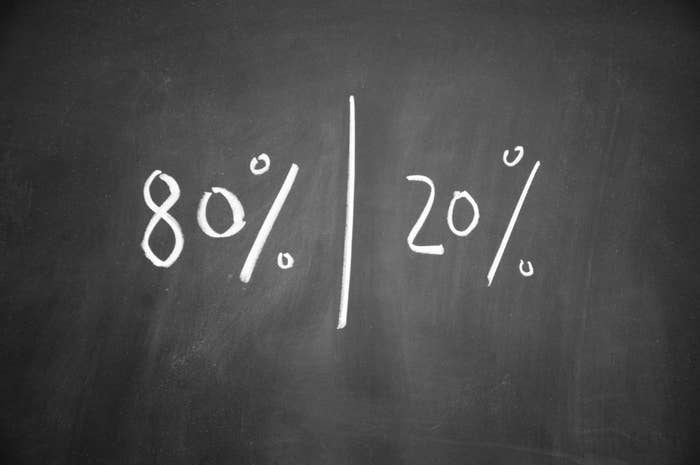The 80/20 principle goes back as far as 1906, when the Italian economist Vilfredo Pareto observed that 80% of the country's wealth was owned by only 20% of the people. This still holds true today, with Global Issues citing World Bank data that as of 2008, the world's richest 20% accounted for 76.6% of consumption. As far back as the 1930s and 1940s, a certain Dr. Joseph Juran studied this phenomenon and came up with the phrase: "vital few and trivial many." This isn't confined to the distribution of wealth, either. It has been tested time and again to apply to practically everything. This includes several aspects of business.
What Exactly is the 80/20 Rule?
Basically, the 80/20 principle states that 80% of results come from 20% of input. Conversely, it also means that 20% of mistakes lead to 80% of the problems. The principle applies in other ways. As F. John Reh expounds in About.com, 20% of any project work/sales staff/suppliers/etc. will account for 80% of the resources/sales/stock/etc., respectively. It also follows that the same 20% will be the root of 80% of your problems.
So How Does this Apply to Me, Exactly?
For starters, you will generally generate around 80% of your sales from just 20% of your clients. This is why experts repeatedly stress the importance of a loyalty program, aside from the fact that it costs much more to acquire new customers than to retain existing ones (quite probably to the same 80/20 ratio).
More specific for this time of the year, Brafton cites a study by Yahoo showing that companies make 40% of their annual revenue during the last two months of the year. While this may seem way short of the 80% promised by the 80/20 rule, this is only because the study doesn't include purely holiday businesses, such as those "making wrapping paper or offering holiday travel packages." Thus, it only makes sense to have a distinct marketing plan focused specifically on these last two months.
Generally, the 80/20 rule means you should spend 80% of your time and resources on the most effective 20% of your business efforts. For example, a survey from MailChimp showed that 44% of companies expect up to 24% of their holiday sales to come solely from email marketing.
The Bottom Line
All of this boils down to determining the most important 20% of your business and focusing 80% of your efforts on them. This not only makes your efforts more effective, it can also free up more of your already severely limited time as a business owner.


